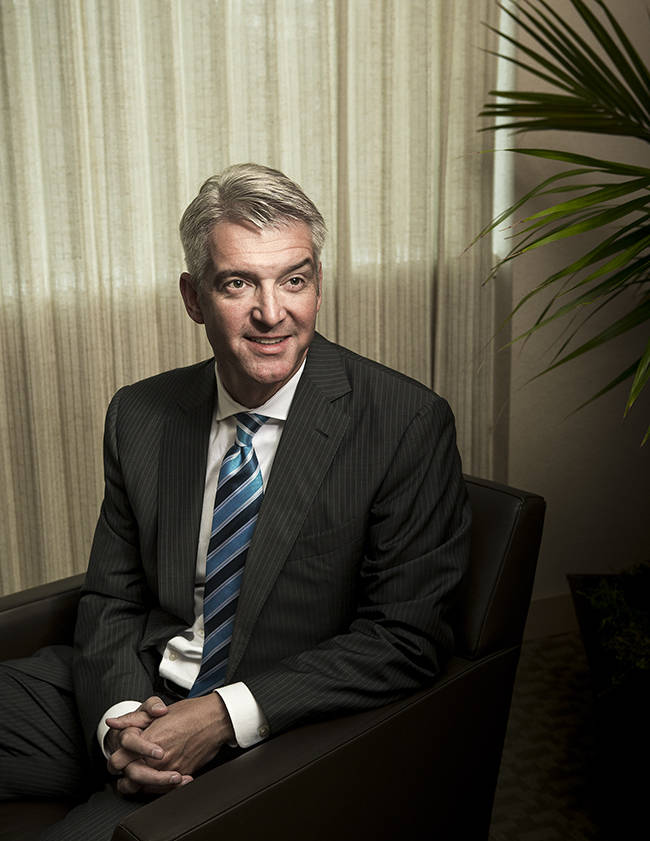This month we’ve been publishing essays by health care leaders about improving the system. They were asked: Now what? With repeal-and-replace shelved for now, what should be done to improve the health care system for patients, communities and health care organizations? What’s right? What’s wrong? What needs to be fixed and what needs to be left alone?
Here’s the fourth and final essay, by Jeff Roe, president and CEO of Premera Blue Cross.
Let me introduce you to a novel idea for the health care industry: Put the customer first.
When I became the CEO for Premera Blue Cross three years ago, I made putting the customer at the center of everything that we do our guiding principle.
It sounds so simple, doesn’t it? After all, this is what great brands like Amazon, Nordstrom, Alaska Airlines and Microsoft do every day. Yet, somewhere between the family doctor pictured in those iconic Norman Rockwell paintings of the 1940s and 1950s and season five of “Grey’s Anatomy” we, in the health care industry, to some degree lost our way.
Health insurance companies occupy a unique position within the health care system. We serve as a connection between the patient and the doctor and the pharmacy. Our position as the “payer” affords us a global view into health care.
The result is we spend a lot of time listening to people talk about their health care experiences. What they tell us can be broken into four common concerns:
■ “I don’t get good value for what I pay.”
■ “I don’t always get what I need.”
■ “Sometimes I get what I don’t need.”
■ “Too often, I don’t get the experience I want.”
Spend time digging among the many reasons why our current health care system is broken and you quickly discover they stem from an outdated “fee for service” model in health care that rewards doctors for the volume of care they deliver rather than the quality of care.
As a health plan, we are partly to blame for enabling this practice to continue for so long. We paid doctors to run more tests, make more appointments and prescribe more pills, but we didn’t reward them for making you well.
This is by no means an indictment of doctors. The vast majority of doctors do great work. They care deeply about their patients and strive to give them the best care possible. However, in a system that rewards volume, many patients undergo expensive tests they don’t need or invasive procedures that put them at risk. In some cases, the cure really is worse than the disease.
I can hear the critics now: as a health plan, your job is to pay the bills and make sure my doctor is in network. Fair enough.
At Premera, we believe that if we are truly to stand beside our customers, we need to do much more than pay the bills. We need to work with doctors, hospitals and government to make health care work better.
The Everett Clinic is a great example. In 2012, it became one of the first medical clinics in the state to sign a new contract with us that included specific quality benchmarks to ensure patients received the best care possible.
The Everett Clinic received financial incentives based not on the volume of tests and procedures, but on keeping patients healthy. Since then, we have signed similar agreements with nearly every major clinic and hospital system in the state.
If health care is to work better, then we all need to think differently about how care is delivered and paid for. In my industry, we have been brought up to think that bigger is better, especially when it comes to the size of our network.
I like to think of it like cable TV. Wouldn’t it be great if you just paid only for the channels you wanted to watch?
For example, our Personal Care Plans for consumers in King, Pierce and Snohomish counties are designed to provide the highest quality care at more affordable rates. They include only doctors and specialists from select medical groups like UW Physicians and the Everett Clinic. Doctors work as a team to ensure that each patient’s needs are addressed quickly and effectively.
We believe this model, known as “accountable care,” represents the future of the industry — and a path toward sustainable, stable, affordable care for all.
Of course, these new models of care don’t work if there is no individual health insurance market. Any modifications to the Affordable Care Act must address these core principles: provide affordable and quality health care coverage for as many people as possible, provide adequate funding for Medicaid and provide strong incentives to encourage people to sign up for coverage and stay covered.
The goal should be to improve the quality of care, while making it more affordable.
Fixing our broken health care system doesn’t have to be political. But it does have to put the patient first.
Jeff Roe is the president and CEO of Premera Blue Cross.
Talk to us
> Give us your news tips.
> Send us a letter to the editor.
> More Herald contact information.

























